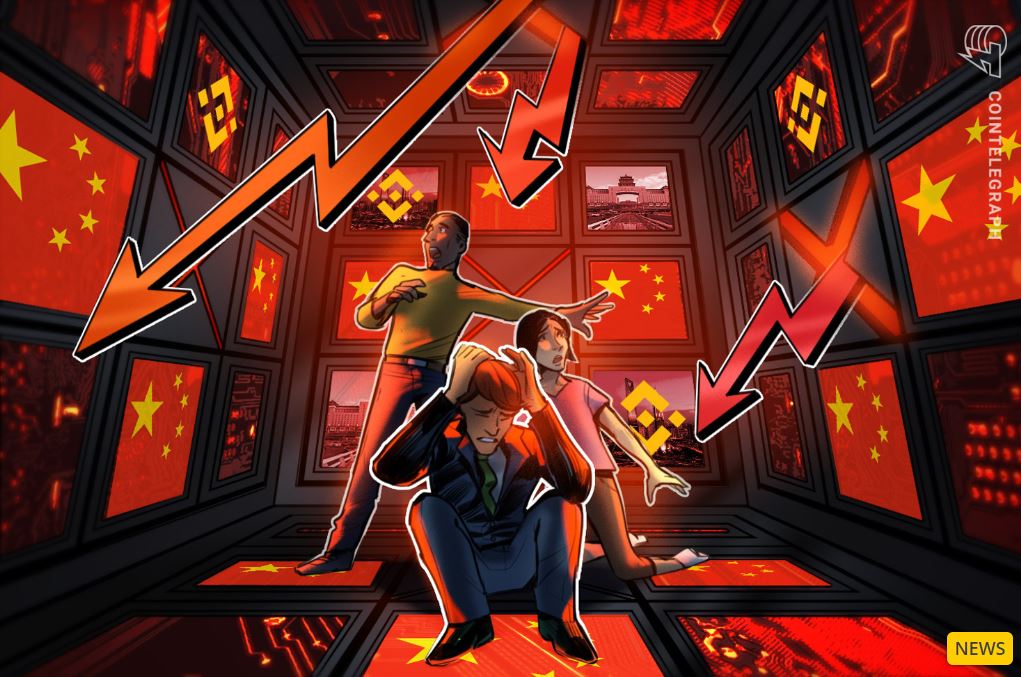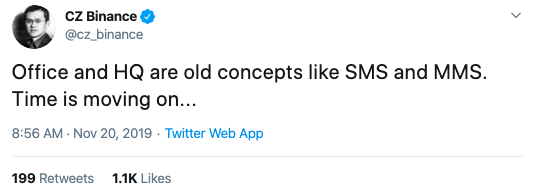
People were surprised to see a headline that garnered much market shock:
Markets Crash after reports that Binances Shangai Office Closed in Crypto Crackdown
Argh. Crypto meltdown!
I was amused to see a headline that garnered much online mirth:
Markets Crash after reports that Binances Shangai Office Closed in Crypto Crackdown
Because Binance doesn’t have an office in Shanghai.
Like most modern firms, Binance has a virtual office with an address in Shanghai but their people, workers, management and staff all live around the world. Not in Shanghai. This fact was reported in more depth in The Block:
“Sources said many of Binance's executives along with as many as 100 other employees worked at the office”, but “when reached for comment, a Binance spokesperson refuted the raid, saying that the exchange doesn't have ‘a fixed office in Shanghai’.”
This is a great reflection on decentralisation and globalisation, and the challenge to governments and regulators of technology and networks.
A little bit like Puertopia, where the crypto millionaires have colonised Puerto Rico, offshore tax havens and states that provide crypto immunity are very popular. It’s why Binance is head officed in Malta and why so many companies have subsidiaries in the West Indies, Caribbean, British Virgin and Channel Islands. It’s all about escaping governance. And it’s not just crypto kids doing this. Big companies do it all the time. Take Apple:
Apple said 70 percent of its profits come from outside the US, yet its foreign tax rates typically fall between two to five percent only. In the US, it would have paid a 35 percent tax rate on those profits.
And, of course, banks do it all the time too:
When Barclays boss Bob Diamond confirmed that the bank had about 300 subsidiaries in tax havens there were gasps of dismay at a Treasury Select Committee hearing earlier this month.
In a corporate brochure published on Barclays' website, Mauritius is promoted as “the offshore financial centre of choice for India and the sub-Saharan region” and “the experienced and established gateway for investment into Africa and Asia”.
In other words, the decentralisation model is already working well in the real, physical world, so what’s the problem with decentralisation in the networked, virtual world? It’s just the same thing?
In other words, crypto and banking are both decentralised finance. The only difference is that crypto does it online.
Chris M Skinner
Chris Skinner is best known as an independent commentator on the financial markets through his blog, TheFinanser.com, as author of the bestselling book Digital Bank, and Chair of the European networking forum the Financial Services Club. He has been voted one of the most influential people in banking by The Financial Brand (as well as one of the best blogs), a FinTech Titan (Next Bank), one of the Fintech Leaders you need to follow (City AM, Deluxe and Jax Finance), as well as one of the Top 40 most influential people in financial technology by the Wall Street Journal's Financial News. To learn more click here...


